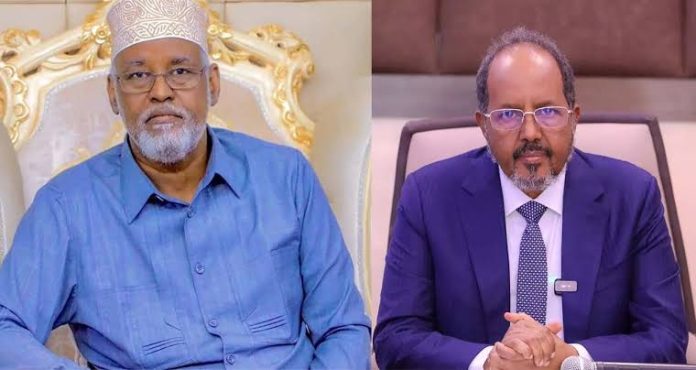Facebook Twitter Instagram Somali Magazine - People's Magazine
Jubaland President Ahmed Mohamed Islam, widely known as Ahmed Madobe, has launched a scathing criticism of the Somali federal government, accusing it of marginalizing regional states and hoarding national resources. Speaking at the Jubaland Investment Conference, Madobe described the administration of President Hassan Sheikh Mohamud as an entity that functions solely in Mogadishu, neglecting the country’s federal member states and exacerbating economic hardships in his region.
Madobe’s remarks reflect a growing rift between Somalia’s central government and regional administrations, particularly concerning governance, resource allocation, and security matters. The Jubaland leader expressed his frustration with what he sees as an uneven distribution of national wealth, stating that the federal government has politicized development projects while withholding Jubaland’s rightful share of economic resources.
“As long as this system remains in place, we expect nothing from the federal government. We do not recognize it as a national administration working for Somalia’s collective interests,” Madobe asserted during his speech. “To us, it is simply a company operating in Mogadishu.”
Jubaland, a strategically significant region bordering Kenya, has had a long-standing tense relationship with the Somali federal government. The region’s leadership has often clashed with authorities in Mogadishu, particularly over the control of Kismayo’s lucrative port, a key economic hub in southern Somalia. The dispute over resource management and security arrangements in the area has fueled ongoing tensions, with both sides refusing to compromise.
Since assuming leadership in 2013, Madobe has maintained a strong stance against what he perceives as central government overreach. His administration has relied heavily on support from Kenya, particularly in security matters, leading to further friction with Mogadishu. The federal government has, in turn, questioned his legitimacy, refusing to recognize his 2019 re-election, which it deemed unconstitutional. Somali authorities have also accused the Jubaland leader of various national offences, even claiming he faces an active arrest warrant.
The latest escalation of rhetoric underscores the challenges of Somalia’s federal system, where regional states demand greater autonomy while the central government seeks to consolidate power. The ongoing tensions have significant implications for national security, economic stability, and Somalia’s long-term governance framework.
Observers fear that continued hostilities between Jubaland and the federal government could further destabilize Somalia, which is already grappling with extremist threats, political instability, and economic hardship. The dispute has also complicated Somalia’s international relations, particularly with Kenya, which maintains a strong influence in Jubaland and has a vested interest in the region’s stability.
As the impasse continues, calls for dialogue and reconciliation have grown louder. Political analysts suggest that without meaningful negotiations and an inclusive governance framework, Somalia risks further fragmentation, making it harder to achieve lasting peace and development.

